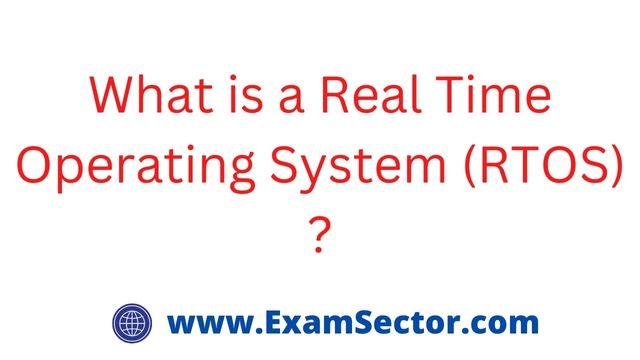What is a multiprogramming Operating System ? Multiprogramming is the name given to the interleaved execution of two or more different & independent programs by the same computer. In this more than one program in main memory at a same time. In multiprogramming operating system two or more programs are resides in themain memory and…
What is Time Sharing Operating System ?
What is Time Sharing Operating System ? Time-sharing is a mechanism that allows the many users to use a computer system in such a way that each user is given the impression that they use their own system. It has many user terminals simultaneously connected to the same computer. Using these terminals multiple users can…
What is a Real Time Operating System (RTOS) ?
What is a Real Time Operating System (RTOS) ? Real-Time systems are always on-line but on-line systems need not be real-timesystems. However, further constraints are placed in terms of response time and availability of the system. By definition, a real time system receive data and process it quickly enough to produce output which can be…
What is Batch Operating System ? Advantage and Disadvantage
What is Batch Operating System ? Advantage and Disadvantage What is Batch Operating System ? In Batch operating system, data is collected over a period of time and the processing of the data is deferred to a later time. This approach was used very commonly in the past when punch cards served as data storage…
What is Operating System ? Functions of Operating System
What is Operating System ? Functions of Operating System What is Operating System ? An operating system is a software program that provides an interface between user & the computer and manages thousands of applications. It’s a collection of system software that co-ordinates between the hardware, provides a platform for software to run on. An…
What is interpreter in computer ?
What is interpreter in computer ? An interpreter is another type of translator which is used for translating programwritten using high level languages. It takes one statement of high level language, translates into machine language & immediately executes the resulting machine language instructions. The main difference between compiler & interpreter is that compiler can translates…
What is Compiler ?
What is Compiler ? A computer can directly execute only machine language programs. So the high level language program must be converted into its equivalent machine language program before can be executed. This translation is done with the help of a translator program which is known as compiler. A compiler is a translator program which…
What is assembler ?
What is assembler ? A computer can directly execute only machine language programs so the assembly language program must be converted into its equivalent machine language program before can be executed. This translation is done with the help of a translator program which is known as assembler. Assembler is a special program (translator) which translates…
What is a High-Level Language (HLL) ? | Advantages and Disadvantages
What is a High-Level Language (HLL) ? | Advantages and Disadvantages The machine language & assembly language requires a good knowledge of internal structure of computer. The both languages are machine dependent & it is difficult to solve error. To remove this limitation the high level language are introduced. The high level languages machine independent…
What is Assembly Language? | Advantages and Disadvantages
What is Assembly Language? | Advantages and Disadvantages Assembly language is a language which allows instruction & storage location to be represented by letters & symbols, instead of number. A program written in an assembly language is called assembly language programor symbolic program. Assembly language was introduced in 1952. Machine language was tedious to code…








